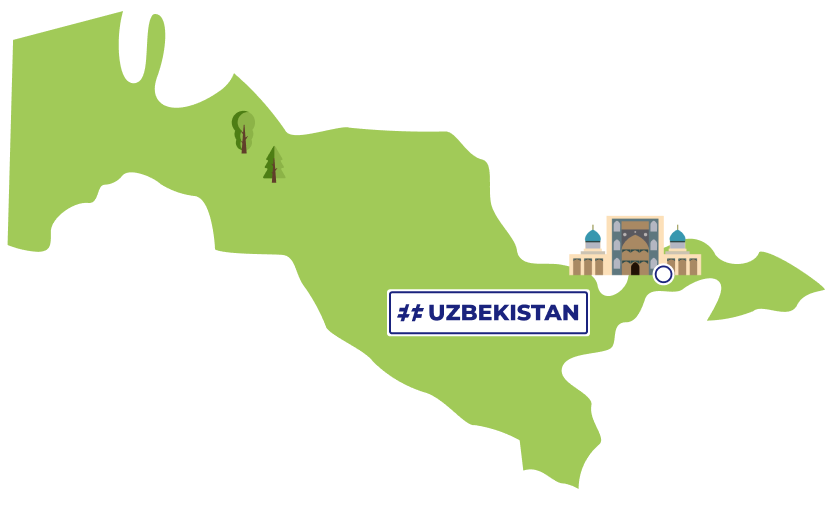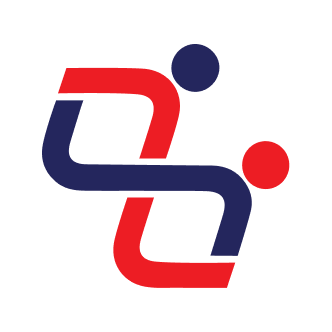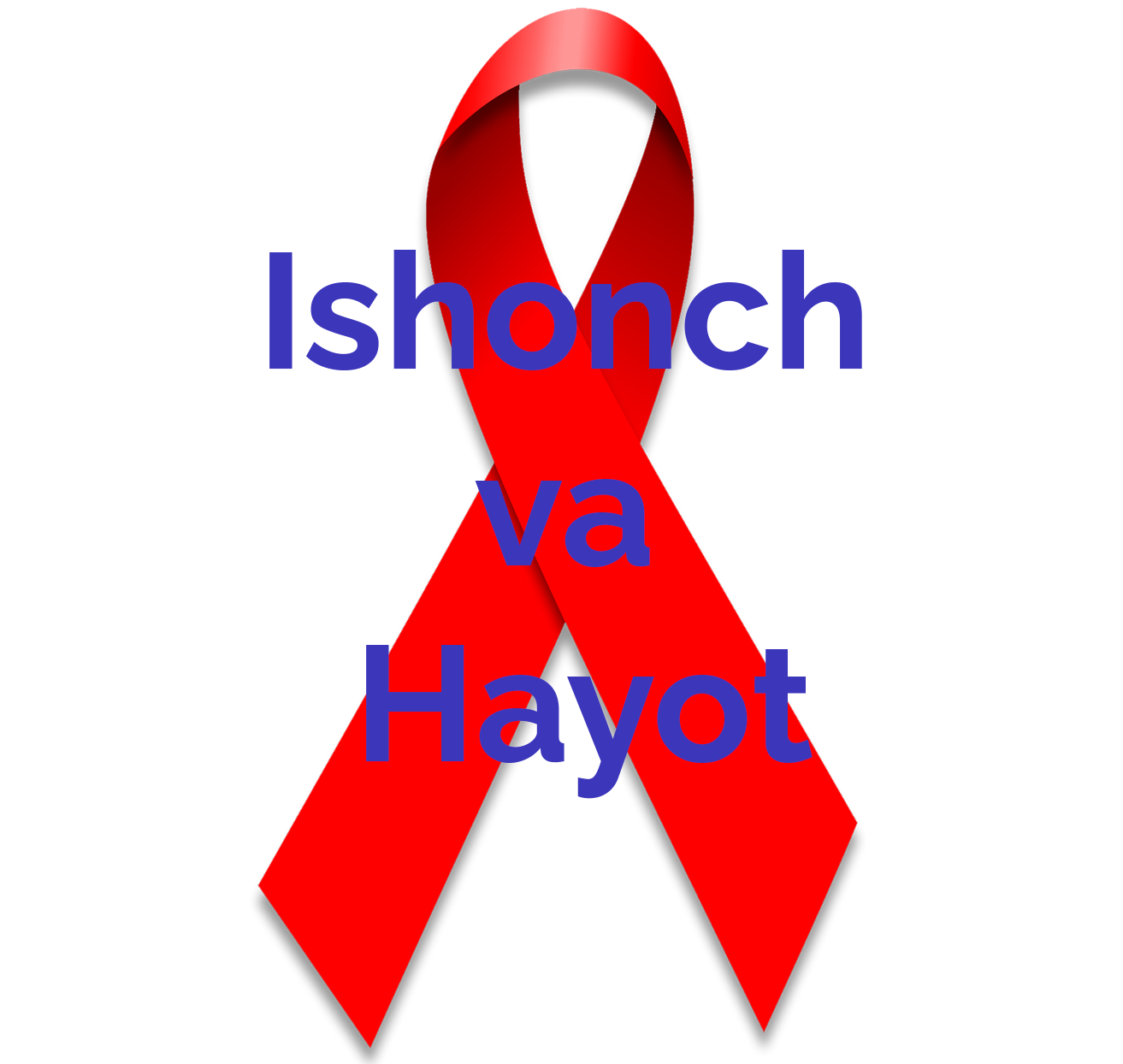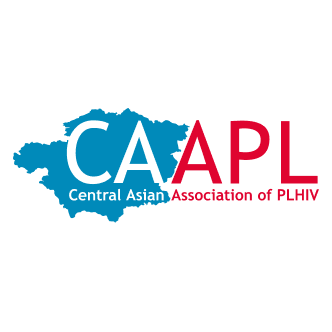
Uzbekistan
01. HIV care cascade
ACTIVITIES
REAct monitoring system implementation to capture COVID-19 related rights violations
Progress to date
Support of the hotline / phone services within REAct monitoring system implementation in order to provide distant support and legal consultations to women from groups at risk suffering domestic violence and experiencing human rights violations (in Tajikistan and Uzbekistan) – Distant legal consulting to avoid face-to-face meetings between client and REActors. With the help of crisis and instant assistance, it was possible to expand the coverage of clients with services (38% of all services in Tajikistan and 45% in Uzbekistan) and reduce barriers to accessing REAct services.
National Contingency Planning
Progress to date
Supporting key group populations in a COVID setting “General contingency planning guide developed in the frames of the C19RM is available here.
Guide by APH for Contingency Planning for Key Population HIV Services during COVID-19 and Other Emergencies for North Macedonia, Serbia, Bosnia and Herzegovina, Montenegro, Moldova, Georgia, Kazakhstan, Uzbekistan, Tajikistan and Kyrgyzstan in English is available at the link https://aph.org.ua/en/eeca/ in the folders with the names of each country.
Community-led advocacy of elimination of identified critical discrepancies with the WHO prevention, testing and treatment guidelines
Progress to date
Current testing and treatment protocols analysis is finished in 7 countries (Armenia, Moldova, Georgia, Kazakhstan, Kyrgyzstan, Uzbekistan, and Ukraine) and recommendations to align the national protocols with the WHO guidelines are provided. The report is available at the link.
WHO has held the analysis of HIV testing guidelines in 6 countries of EECA – Georgia, Kazakhstan, Kyrgyzstan, Moldova, Tajikistan, Uzbekistan. The report is available at the link.
National HIV testing and ART-optimized strategies based on and aligned with the WHO recommendations were developed for 4 EECA countries – Armenia, Kazakhstan, Kyrgyzstan, Moldova.
In Armenia, Kazakhstan, Kyrgyzstan, and Moldova, all key actions related to the development and implementation of HIV testing and ART optimization strategies, in line with WHO recommendations, have been completed. According to the results of the assessment in 2022, there was a need to replace Georgia with another country to implement activities for 2023 and 2024 since the Georgian testing and treatment protocol is generally in line with the 2021 WHO recommendations for the use of ARV drugs for the prevention and treatment of HIV, and as well as other aspects of the clinical management of HIV. During project meetings different optios were discussed, and the desicion was taken to continue the activities in Armenia instead of Georgia.
Armenia
- Approved – Order of the Ministry of Health of Armenia No. 6241-L dated 11/13/2024 on implementation of the clinical protocol “Pre-Exposure Prophylaxis of HIV Infection” in Armenia. The Order entered into force on November 13, 2024.
- Approved – Clinical protocol “Pre-Exposure Prophylaxis of HIV Infection”.
An official letter-response from the Ministry of Health of Armenia dated on November 26, 2024 confirms the approval of the PrEP protocol and contains the information on other legal acts that are developed and will be approved in 2025.
Community-led advocacy of elimination of identified critical discrepancies with the WHO prevention, testing and treatment guidelines
Progress to date
Current testing and treatment protocols analysis is finished in 7 countries (Armenia, Moldova, Georgia, Kazakhstan, Kyrgyzstan, Uzbekistan, and Ukraine) and recommendations to align the national protocols with the WHO guidelines are provided. The report is available at the link.
WHO has held the analysis of HIV testing guidelines in 6 countries of EECA – Georgia, Kazakhstan, Kyrgyzstan, Moldova, Tajikistan, Uzbekistan. The report is available at the link.
National HIV testing and ART-optimized strategies based on and aligned with the WHO recommendations were developed for 4 EECA countries – Armenia, Kazakhstan, Kyrgyzstan, Moldova.
In Armenia, Kazakhstan, Kyrgyzstan, and Moldova, all key actions related to the development and implementation of HIV testing and ART optimization strategies, in line with WHO recommendations, have been completed. According to the results of the assessment in 2022, there was a need to replace Georgia with another country to implement activities for 2023 and 2024 since the Georgian testing and treatment protocol is generally in line with the 2021 WHO recommendations for the use of ARV drugs for the prevention and treatment of HIV, and as well as other aspects of the clinical management of HIV. During project meetings different optios were discussed, and the desicion was taken to continue the activities in Armenia instead of Georgia.
Armenia
- Approved – Order of the Ministry of Health of Armenia No. 6241-L dated 11/13/2024 on implementation of the clinical protocol “Pre-Exposure Prophylaxis of HIV Infection” in Armenia. The Order entered into force on November 13, 2024.
- Approved – Clinical protocol “Pre-Exposure Prophylaxis of HIV Infection”.
An official letter-response from the Ministry of Health of Armenia dated on November 26, 2024 confirms the approval of the PrEP protocol and contains the information on other legal acts that are developed and will be approved in 2025 is also attached.
02. Removing HR/gender barriers
ACTIVITIES
Legal environment assessment on MSM and trans people in 4 countries
Progress to date
Legal environment assessments for Kyrgyzstan and for Uzbekistan were published.
In 2024, ECOM conducted a legal Environment Assessment in 4 countries of EECA. This comparative country analysis aimed to identify legal barriers and issues in areas where the necessary legislation already exists, but does not fully ensure the implementation of rights and freedoms for gay men, other MSM and trans people.
All reports consist of these chapters:
- International obligations of the country and their implementation;
- Table: Compliance of Domestic legislation with international standards;
- Analysis of legal regulations related to SOGI and HIV and their application;
- Recommendations.
All reports were published on ECOM’s website.
- Legal Environment Assessment in Armenia;
- Legal Environment Assessment in Georgia;
- Legal Environment Assessment in Kazakhstan;
- Legal Environment Assessment in Moldova.
Developing and launching call for “Gender and HIV” small grants with special eligibility focus on Monitoring situation with human rights of Trans* people
Progress to date
Small Grants Programme with 4 selected projects run by grass-root NGOs in 2022 included:
- “National Trans Coalition” NGO with the project titled “HIV prevention in Armenia through gender mainstreaming” (Armenia);
- “The Public Association “Union for Equity and Health” NGO with the project titled “Gender Equality for sex workers” (Moldova);
- “Rromnjako Ilo” Zrenjanin he Public Association” NGO with the project titled “Check your health – Equality for Trans Roma and Roma women/girls sex workers” (Serbia);
- “NON-GOVERNMENTAL ORGANIZATION «NASHA DOPOMOGA»” with the project titled “RIGHT TO HEALTH!” (Ukraine).
- The project applicant is the organization “Albanian Association of People Living with HIV/AIDS (PLWHA)” with the project titled “New approach on transforming the spiral of exclusion and marginalization, towards the right of recognition before the law, gender-diverse and reduce the violence in health-care settings for trans persons in Albania”.
- The project applicant is the “National Trans Coalition” NGO with the project titled “Strategic pathway to remove structural barriers for trans* communities to PrEP and PEP services in Armenia”. The proposed project has been designed to establish favorable conditions for improving access of Trans* communities to PrEP and PEP services in Armenia.
- The project applicant is the organization “STAR STAR” Skopje with the project titled “Community Mobilization to Mitigate Funding Cuts and Gender Inequality in National HIV Programs for Sex Workers in North Macedonia”. The project is envisioned as a response to the latest developments in North Macedonia related to provision and delivery of HIV prevention services for key populations.
- The project applicant is the organization “Rromnjako Ilo” Zrenjanin he Public Association” NGO with the project titled “Supporting health wellbeing and safety of Trans and Intersex Roma, sex workers and HIV+”.
In 2024, grants “Gender and HIV” were implemented in Albania, Georgia, Moldova and Ukraine.
Moldova
GENDERDOC-M, alongside a parent support group, aimed to create a safe and inclusive environment for transgender and gender-nonconforming youth. Two formal partnerships with youth clinics expanded access to health services and 24/7 hotline support. Parent education sessions led to increased understanding, school negotiations for name recognition, and medical referrals. As a result, a strategic plan for 2025 includes engaging health and education ministries to address systemic barriers.
Georgia
The Queer Association Temida established an informal network of trans-friendly professionals across three cities, despite restrictive anti-LGBT laws. The network held two meetings to discuss the legal landscape and continued service delivery. A memorandum with Psychea Mental Health Center helped maintain access to gender-affirming care. A peer educator training course was launched, and two trained educators provided online consultations to 32 beneficiaries, offering support on HIV and gender-affirming care.
Ukraine
The “Help Is Near” project by HPLGBT produced a comprehensive report on barriers and solutions in trans health services, especially for intersectional groups like sex workers and those using psychoactive substances. Recommendations for service decentralization were developed and are planned to be presented to the CCM in early 2025. HPLGBT aims to integrate these recommendations into national funding requests to the Global Fund, ensuring sustained support for marginalized trans communities.
REAct (https://react-aph.org/): Monitoring of human rights violations and discrimination against PLHIV and KPs. Responding to such cases through provision or referring to legal or social services to victims and through advocacy actions. In Georgia, Kyrgyzstan, Moldova and Tajikistan, REAct system was initiated within SoS_project#1.0 in 2020, and in 2022 is transferred to national funding, meanwhile APH continues to provide technical support to users. In Ukraine, REAct was implemented in 2019 and is functional within national GF grant. REAct system is supported by APH in Uzbekistan for 2022-2023, in 5 Balkan countries – for 2022-2024, and in Armenia and Azerbaijan – for 2023-2024. At the same time, regional networks ECOM and ENPUD started to use REAct program for documentation in several countries of the region and are supported for 2022-2024 within SoS_project#2.0 grant.
Progress to date
Cumulatively, during 2022 there were registered 6700+ cases in 13 countries (Albania, Armenia, Bosnia and Herzegovina, Georgia, North Macedonia, Moldova, Montenegro, Kazakhstan, Kyrgyzstan, Tajikistan, Serbia, Ukraine, Uzbekistan) involving 170+ CBOs, as well as regional networks such as ECOM (in Uzbekistan, Tajikistan, Armenia, Kazakhstan, Kyrgyzstan) and ENPUD (Georgia, Moldova, Ukraine, Kyrgyzstan, Kazakhstan, Tajikistan, Belarus).
The following publications are available:
- Statistic country reports by APH on human rights violations based on REAct data collected in 2021 in Kyrgyzstan, in Georgia, in Moldova, in Tajikistan.
- Protectors or Perpetrators: the impact of unlawful policing on human rights and HIV. Join analytical publication in partnership with Frontline AIDS, Alliance for Public Health (Ukraine, Kyrgyzstan, Tajikistan, Moldova, Georgia, Uzbekistan), AIDS Foundation (South Africa), Gender Dynamix.
- Report on the results of the analysis of the Hotline calls by APH: Domestic and other forms of violence against women living with HIV and women in key populations during the COVID-19 pandemic in Tajikistan.
- REAct Statistical Report for the 1st half of 2022 by APH. Violations of the rights of people living with HIV and representatives of vulnerable groups in Georgia.
Situational Report by APH: Drug policy in Georgia and Challenges. - Series of publications by APH based on REAct data within regional campaign “16 days against gender-based violence”.
REAct system is available and functional at the national level in the following counties. It enables documentation of cases of human rights violations: Albania (45 cases), Armenia (182), Azerbaijan (174), B&H (70), Montenegro (60), Kazakhstan (363), North Macedonia (42), Tajikistan (1155), Serbia (24), Uzbekistan (835). More detailed data of 2023 is available in REAct Regional Digest and REAct website.
Cumulatively in 10 countries, 49,9% of documented cases were responded by REActors, their organizations or through referral to partner NGOs or institutions. During 2023 in 10 countries, there were provided 2162 consultations about human rights, 1022 consultations with professional lawyers. In 168 cases REActors helped to draft simple legal documents, such as complains or statement to police, in 236 cases represented client’s interests in medical facilities, assisted in getting medical services and support, in 336 cases – accompanied the client in the initial appeal to the police. There were at least 20 strategic court cases, and at least 162 cases were used for shadow reports to UN Treaty Bodies.
Cumulatively in 8 countries (Armenia, Azerbaijan, Kazakhstan, Albania, Bosnia and Herzegovina, Montenegro, North Macedonia, Serbia) 56,2% of documented cases were responded by REActors, their organizations or through referral to partner NGOs or institutions (https://drive.google.com/drive/folders/1wtJaecXERatg8cmrAE1mzaoshtdLQY_w). Numerous success stories of cases resolutions are available at REAct website.
Decriminalization of HIV and unintended HIV transmission
Progress to date
100% Life conducted an analysis of the legal environment in Georgia, Kyrgyz Republic and the Republic of Uzbekistan in order to identify regulatory legal acts that need to be amended to reduce the criminalization of people living with HIV.
During 2023, draft legislative amendments to the regulations in the context of the legal and legislative acts that contribute to the criminalization of HIV in Georgia, Kyrgyzstan, Kazakhstan, and Uzbekistan were developed. These amendments concern both general and specialized norms.
- Draft Law “On amendments and additions to the Criminal Code of the Republic of Uzbekistan with regard to liability for human infection with the immunodeficiency virus (HIV)”
- Legal justification for amending the requirements to the list of professions prohibited for people living with HIV infection. By Order of the Minister of Health of the Republic of Uzbekistan (registered by the Ministry of Justice on 7.05.2014 No. 2581) and In accordance with Article 21 of the Law “On counteracting the spread of the disease caused by human immunodeficiency virus (HIV infection)” (dated 23.09.2013 No. ZRU-353) it is not allowed to terminate the employment contract, refuse an employment (except for certain types of professional activities provided by the list established by the Ministry of Health of the Republic of Uzbekistan).
Extensive advocacy efforts were made to decriminalize HIV in Uzbekistan, focusing on amending Article 113 of the Criminal Code. A working group comprising state representatives, NGOs, and experts developed a Draft Law “On amendments and additions to the Criminal Code of the Republic of Uzbekistan about liability for human infection with the immunodeficiency virus (HIV)” and discussed it during a Stakeholders meeting in May 2024. The finalized Draft Law with Recommendations was officially submitted to the Committee of the Legislative Chamber of the Oliy Majlis of the Republic of Uzbekistan on Public Health Issues in September 2024 and was accepted for consideration, marking a crucial step toward HIV law reform. Moreover, the List of Jobs and Types of Professions Prohibited for PLHIV (Reg. No. 881 dated January 25, 2000) was amended and now excludes professions of diagnostics and medical-preventive procedures, nursing, services rendered to the public (care for newborns, critically ill patients, work with preschool children and their education), massage procedures, and contact sports.
03. Budget advocacy
ACTIVITIES
Legal framework for financing HIV services from domestic funds – development and approval
Progress to date
Targeted activities were held in all project countries to discuss with national and international, governmental and non-governmental stakeholders the changes needed to enable sustainable and uninterrupted funding of HIV-related activities from national resources. Through targeted advocacy, technical support, and an integrated approach to HIV funding, in 2022 the project team managed to allocate approximately 1,7 million USD at the national level to programs for key populations, using social contracting mechanisms: Moldova – 154,126.84 USD; Kazakhstan – 118,529.33 USD; Kyrgyzstan – 61,000 USD; Tajikistan – 19,200.00 USD; Georgia – 357,000 USD; Ukraine – 931,453.96 USD.
Over three years of implementation of SoS_project 2.0 has contributed to significant changes in the financing of HIV services in 14 countries in SEE and EECA regions. The project supported the development of service delivery standards, pricing methodologies, and quality control procedures, which are critical for sustainable financing from the state budget.
The practice of social contracting is applied without interruption in 14 countries.
Increasing domestic financing of countries for services to key groups
Progress to date
Targeted activities were held in all project countries to discuss with national and international, governmental and non-governmental stakeholders the changes needed to enable sustainable and uninterrupted funding of HIV-related activities from national resources. Through targeted advocacy, technical support, and an integrated approach to HIV funding, in 2022 the project team managed to allocate approximately 1,7 million USD at the national level to programs for key populations, using social contracting mechanisms: Moldova – 154,126.84 USD; Kazakhstan – 118,529.33 USD; Kyrgyzstan – 61,000 USD; Tajikistan – 19,200.00 USD; Georgia – 357,000 USD; Ukraine – 931,453.96 USD.
Thanks to budget advocacy within the SoS project 2.0, the amount of money allocated from national budgets for HIV services through social contracting mechanisms in EECA project countries amounted to $3 269 959 in 2024. During SoS project 2.0 – $ 6 273 049 were allocated for social contracting in EECA region. The cumulative domestic budget expenditures for servicing key populations in 5 countries of SEE amounted to $1 061 383 in 2024. During SoS project 2.0 – $ 3 236 260 were allocated for social contracting in SEE region.
Regulation of service packages for key groups
Progress to date
In the reporting period, the Emergency package of services for key and vulnerable groups of the population in the field of HIV, and TB in the context of military conflicts was finalized, including tariffication. On its basis, in 2023, the process of advocacy and promotion of implementation at the level of countries in the EECA region will be launched.
Strategic Brief on Business Continuity (link) and Strategic Brief on Social contracting (link) were developed. In addition, Analysis of Quality of Services Provided in Azerbaijan was held and is available at the link.
Over three years of implementation of SoS_project 2.0 has contributed to significant changes in the financing of HIV services in 14 countries in SEE and EECA regions. The project supported the development of service delivery standards, pricing methodologies, and quality control procedures, which are critical for sustainable financing from the state budget.
The practice of social contracting is applied without interruption in 14 countries.





